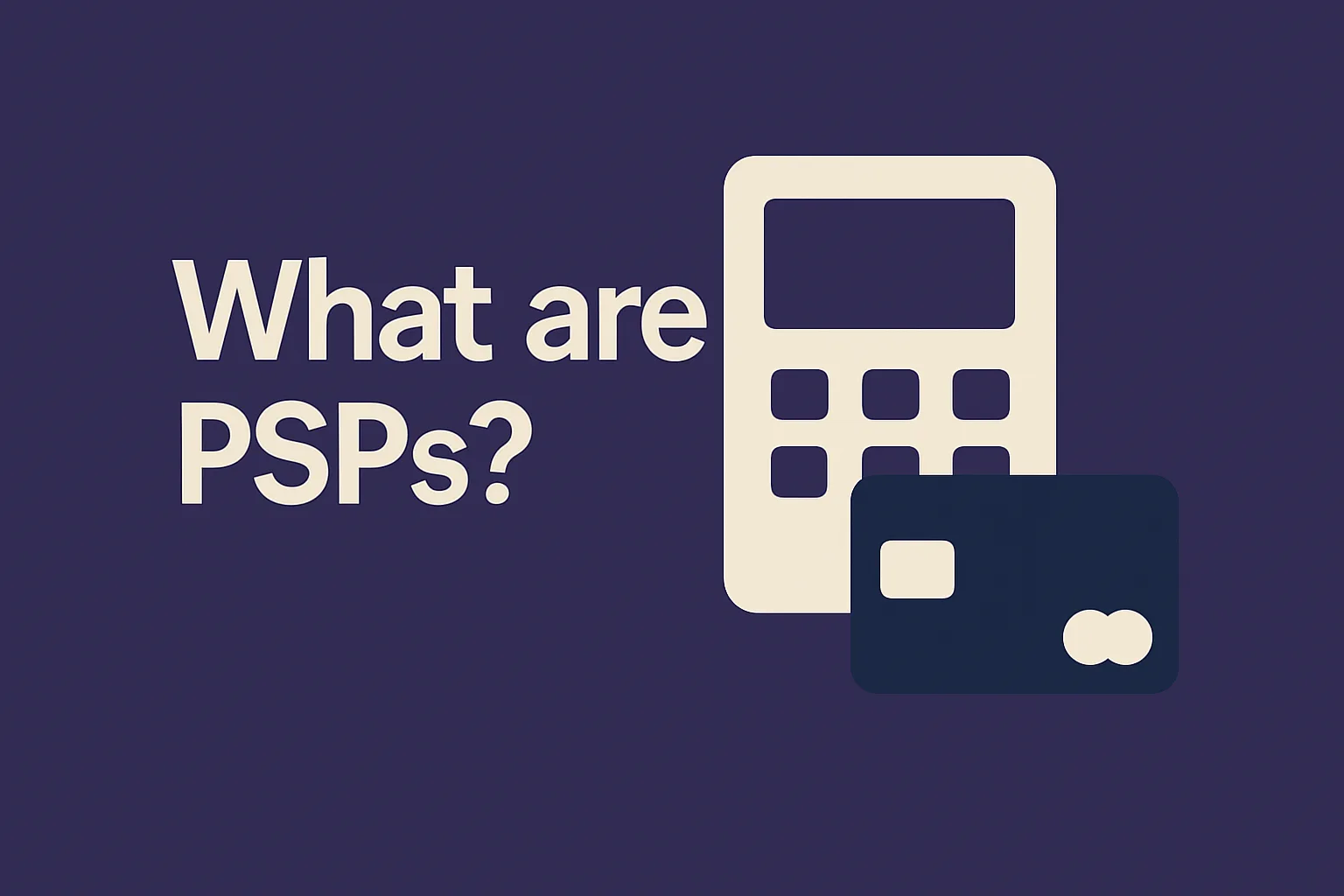In today’s digital economy, accepting payments is no longer as simple as opening a till. Businesses of all sizes need to manage card transactions, mobile wallets, recurring billing, international payments, and more. This is where PSPs, or Payment Service Providers, come in.
PSPs play a central role in enabling e-commerce, digital platforms, and financial services. But what exactly is a PSP, and how do they work? In this article, we break down the core functions, benefits, and types of PSPs. Along with examples and considerations for choosing the right one.
Definition: What Is a PSP?
A Payment Service Provider (PSP) is a third-party company that enables merchants to accept payments from customers via multiple channels. Such as credit cards, debit cards, bank transfers, and digital wallets.
PSPs act as intermediaries between merchants, banks, and payment networks (like Visa or Mastercard), handling the technical and regulatory aspects of payment processing. In short, a PSP provides the infrastructure that allows businesses to get paid online or in-store.
Instead of integrating directly with each payment method and bank, merchants can connect to a single PSP that manages all the complexity on their behalf.
What Do PSPs Actually Do?

The role of a PSP extends beyond just processing card transactions. Most PSPs offer an end-to-end solution that includes:
- Payment Gateway: Software that captures payment information securely and routes it to the appropriate network.
- Merchant Account Services: Some PSPs provide a merchant account or aggregate payments through a master account.
- Transaction Settlement: Managing the flow of funds between customer banks, issuing banks, and merchant accounts.
- Fraud Prevention and Security: Using tools such as tokenisation, encryption, 3D Secure, and anti-fraud analytics.
- Compliance and Reporting: Ensuring PCI-DSS compliance, handling chargebacks, and offering financial reporting dashboards.
- Multi-Currency and Cross-Border Support: Converting and settling payments in different currencies, often at competitive FX rates.
By managing these layers, a PSP allows businesses to focus on customer experience, sales, and growth, rather than navigating complex financial systems.
Examples of Popular PSPs
There are hundreds of PSPs worldwide, but some of the best-known and widely adopted include:
- Stripe: Known for its developer-first APIs and global reach. Offers card payments, wallets, and platform infrastructure.
- Adyen: Used by enterprise merchants like Spotify and Uber. Offers unified payments across online and offline channels.
- Checkout.com: A fast-growing PSP with strong support for global e-commerce and fintechs.
- PayPal: Offers both consumer and merchant solutions, including PayPal Checkout, PayPal Pro, and Braintree.
- Square: A PSP that integrates hardware and software for in-person and online payments, especially for SMEs.
- Worldpay and Nexi: More traditional PSPs serving banks and high-volume merchants across Europe and beyond.
Each PSP has its own strengths in areas such as developer experience, international support, pricing models, and platform features.
Types of PSPs

Not all PSPs operate the same way. The main categories include:
- Full-Stack PSPs: These providers offer both gateway services and a merchant account, handling the full payment stack (e.g., Stripe, Adyen).
- Gateway-Only PSPs: These focus on routing and securing payment data, while merchants use their own acquiring bank (e.g., Authorize.net).
- Aggregator PSPs: These pool many merchants under a single account, simplifying onboarding (e.g., PayPal, Square).
- White-Label PSPs: These are rebranded solutions used by fintechs or platforms to offer payment services under their own name.
Choosing the right type depends on business size, geographic scope, technical requirements, and regulatory needs.
Benefits of Using a PSP
Working with a PSP offers several advantages, particularly for growing businesses:
- Faster Time to Market: PSPs offer plug-and-play integrations with minimal setup time.
- Reduced Compliance Burden: Many handle PCI compliance, fraud monitoring, and risk management.
- Multiple Payment Options: Accept credit/debit cards, Apple Pay, Google Pay, Klarna, and more through one provider.
- Improved Customer Experience: Faster checkouts and localised payment methods increase conversion.
- Scalability: Easily support global payments, recurring billing, and multiple storefronts.
For most businesses, especially online merchants, using a PSP is far more efficient than building a direct relationship with every payment network.
Things to Consider When Choosing a PSP

Not all PSPs are equal. When selecting a provider, businesses should consider:
- Fees and Pricing Model: Understand transaction fees, monthly costs, and settlement terms.
- Supported Payment Methods: Check coverage for your target markets and preferred channels.
- Integration Options: Evaluate ease of API integration or plug-ins for platforms like Shopify, WooCommerce, or Magento.
- Security Features: Ensure robust protection against fraud, chargebacks, and data breaches.
- Customer Support: Availability and responsiveness matter—especially when dealing with payments.
- Reporting and Analytics: Quality dashboards help track performance, refunds, disputes, and settlement timelines.
Enterprise businesses may also need custom SLAs, multi-user access, or support for marketplaces and split payments.
PSPs vs Payment Gateways: What’s the Difference?
It’s common to confuse PSPs with payment gateways. While the two often work together, they are not the same:
- A payment gateway securely transmits card or wallet data from the customer to the acquiring bank.
- A PSP usually includes the gateway function but also manages settlement, risk, and regulatory processes.
In short, all PSPs include a gateway, but not all gateways function as full-service PSPs.
Conclusion: A Critical Layer of Modern Commerce

Payment Service Providers are a core part of the global fintech infrastructure. Whether enabling e-commerce checkouts, mobile payments, or in-store terminals, PSPs reduce complexity and unlock innovation.
For businesses, choosing the right PSP can lead to faster growth, smoother operations, and better customer experience. As embedded finance and global payments continue to expand, PSPs will remain an essential enabler, helping brands navigate financial complexity with confidence.

















